Cadet Ranks & Promotion
The Corps of Cadets is organized as a battalion, a typical military structure with promotions based on academic achievement, conduct, proven leadership abilities, dependability, sportsmanship, and adherence to the Academy’s values.
Just as in the real world, cadets at the Academy learn that leadership responsibility is earned based on knowledge, skills, and abilities; it is not something automatically granted because of age, size, or physical strength.
Because leaders are directly responsible for leading other cadets, they have a unique opportunity to develop personal accountability. Their actions affect not only themselves but they also can be a positive influence on the lives of younger cadets.
The Corps of Cadets consists of an army-style Battalion divided into six companies: Headquarters; Band; Alpha; Bravo; Charlie are High School companies. Echo is the Middle School Company.
~ Pamela R. (Parent)
Opportunities to Succeed in the Leadership Program
The Leadership and Promotion program at Army and Navy Academy is unique for each student. It allows each cadet the opportunity to succeed through a structured system of leadership titles, or “ranks.” It prepares teenage boys to set goals and acquire leadership and management skills to prepare for college and life.
How are leaders chosen?
The process is a rigorous one that is selective based on an exam, physical challenges, an interview and more. Leaders are selected by ability, not popularity.
Does the leadership training help students get into top universities and the service academies?
Since 1910, the Academy has prepared students to gain admission to prestigious higher education institutions.
Graduates attend the prestigious service academies: USMA, USNA, USCGA, USAFA, USMMA and top public and private universities and colleges. The list includes: Stanford, Cornell, Columbia, Georgetown, NYU, MIT, UCLA, UCSB, UCSD, UCI, UC Davis, and UC Berkeley.
Are the skills applicable to career interests?
Cadets acquire real world skills, including: goal-setting, time management, and organization. They learn to lead by example, to mentor and guide others, how to work in teams, and how to inspire others to push their full potential. These skills are applicable to careers in STEM, business/corporations/entrepreneurship, military service, government, law, medicine, diplomacy, the arts, and more.

